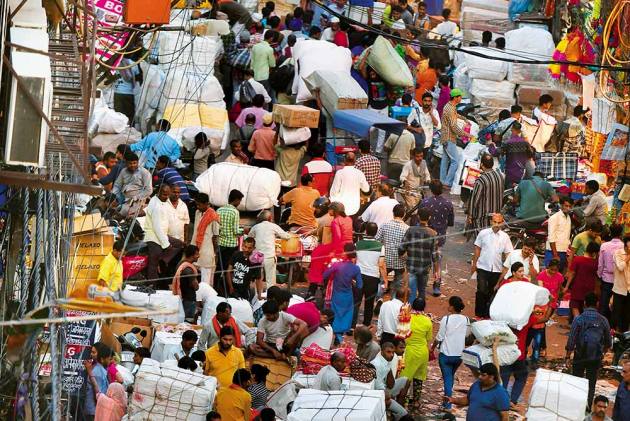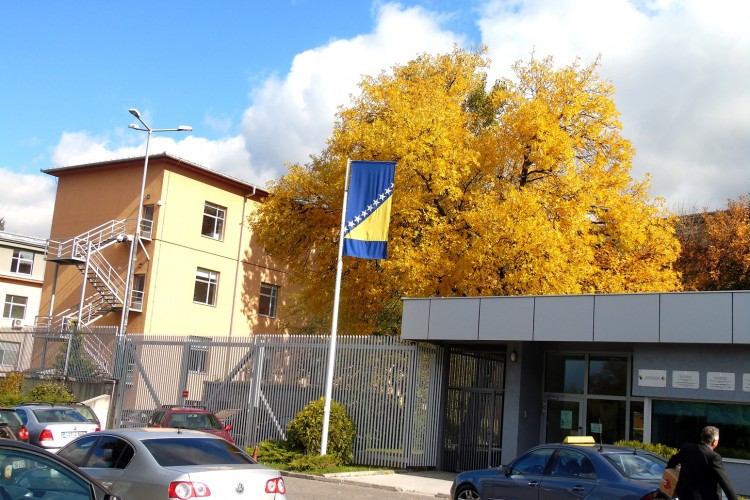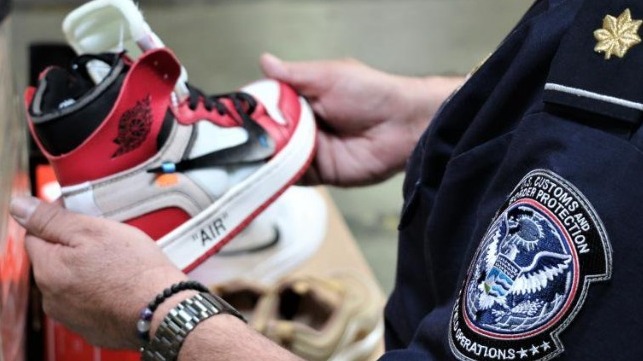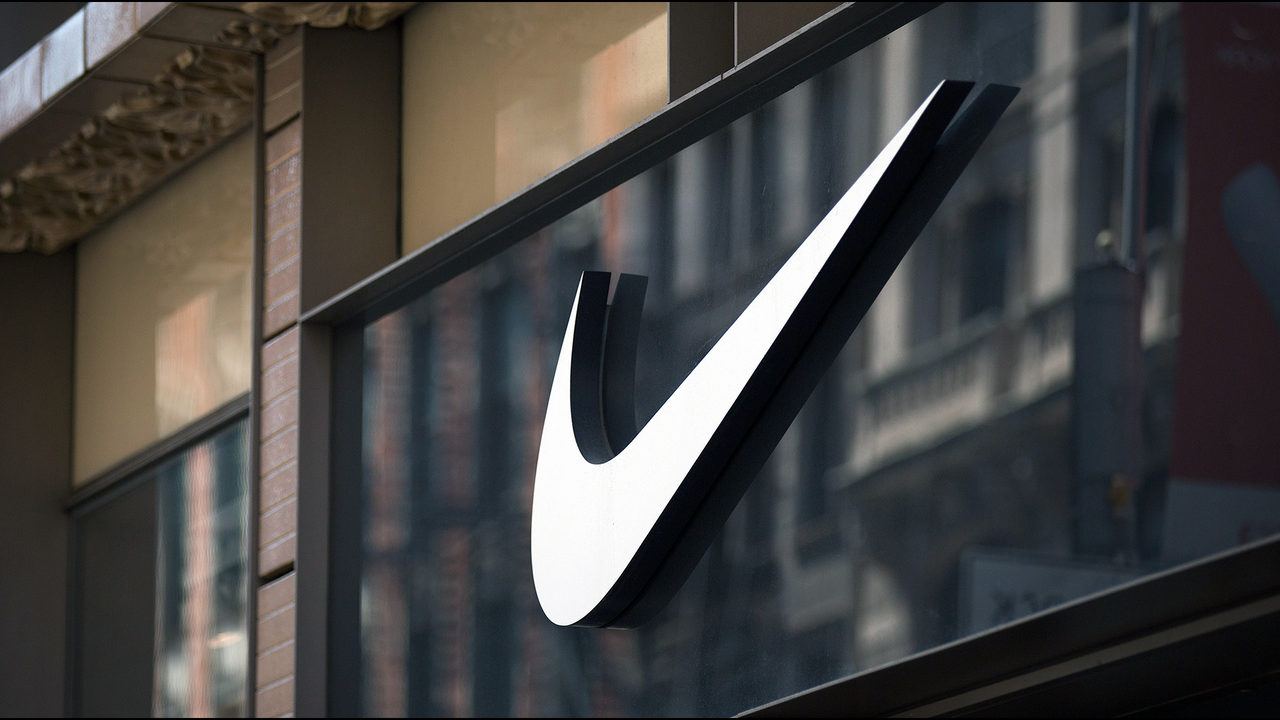Online Searches Often Lead Customers to Counterfeit Goods.
Counterfeit items have been a problem for some of the internet’s biggest retailers for a while now. During their analysis, researchers said, they learned about the proliferation of counterfeit goods simply by conducting searches.
According to the survey, 60% of Google’s first-page results for a brand name antibiotic called Bactrim led to websites that researchers believe were “very likely to be operating unlawfully.” While the biggest concern about counterfeit drugs (and the websites selling them) are potential health issues that could result from taking counterfeit medication, researchers also discovered that these sites could be hacked, leading to potentially dangerous consequences for a person’s private data.
The problems didn’t stop there, either. Researchers found that when they searched for a “Comotomo teether,” nearly one-third of all results featured “potentially harmful products.” Consumers searching for new “white goods,” or common appliances like refrigerators and washing machines, were regularly sent to a website selling counterfeit products.
While the issue has become widespread on some of the world’s top search engines, researchers said there’s currently very little legal recourse.
Through the study, researchers questioned how such situations could exist on major search engines like Google, which facilitates roughly 3.5 billion searches every day.
https://www.businessnewsdaily.com/15311-online-searches-counterfeit-goods.html
Lear MoreOnline Searches Often Lead Customers to Counterfeit Goods.
Counterfeit items have been a problem for some of the internet’s biggest retailers for a while now. During their analysis, researchers said, they learned about the proliferation of counterfeit goods simply by conducting searches.
According to the survey, 60% of Google’s first-page results for a brand name antibiotic called Bactrim led to websites that researchers believe were “very likely to be operating unlawfully.” While the biggest concern about counterfeit drugs (and the websites selling them) are potential health issues that could result from taking counterfeit medication, researchers also discovered that these sites could be hacked, leading to potentially dangerous consequences for a person’s private data.
The problems didn’t stop there, either. Researchers found that when they searched for a “Comotomo teether,” nearly one-third of all results featured “potentially harmful products.” Consumers searching for new “white goods,” or common appliances like refrigerators and washing machines, were regularly sent to a website selling counterfeit products.
While the issue has become widespread on some of the world’s top search engines, researchers said there’s currently very little legal recourse.
Through the study, researchers questioned how such situations could exist on major search engines like Google, which facilitates roughly 3.5 billion searches every day.
In the course of its research, Incopro’s lawyers asked Google to explain its position on these websites and how it removes websites that have infringed on other companies’ trademarks. Incopro’s lawyers were told that the tech giant didn’t “at this time deindex URLs or websites from its Web Search index on trademark grounds upon request,” meaning that the company would do nothing – even if your intellectual property was being copied. Google promised, however, that it would “evaluate court orders issued against third parties and, where appropriate (with content specifically identified), voluntarily remove content from our Web Search results.”
Researchers also learned that Google would “seek relief from orders against it,” meaning that legal rights holders would have to go through litigation to protect their rights and consumer safety. Such a stance doesn’t favor the copyright holder or small businesses, since litigation is often slow and expensive.
https://www.businessnewsdaily.com/15311-online-searches-counterfeit-goods.html
Lear More
Pharmaceuticals and Food Anti-Counterfeiting Technologies Market 2019 – 2025 Industry Size, Share, Opportunities and Growth Analysis with Top Players Inksure Technologies, Sun Chemical, CFC International, Data System International
This report demos every aspect of the Anti-Counterfeiting Packaging market starting from the basic market info and moving forward to various essential standards, on the basis of which, the Anti-Counterfeiting Packaging market is segmented. Main use case scenarios of the Anti-Counterfeiting Packaging market are also mentioned on the basis of their performance. Furthermore, the geological segmentation is provided in the report.
For the purpose of the study, Global Pharmaceuticals and Food Anti-Counterfeiting Technologies market is segmented based on various parameters. An in-depth regional classification of the market is also included herein. The factors which are impacting the market’s growth are studied in detail. The report also presents a round-up of vulnerabilities which companies operating in the market must avoid in order to enjoy sustainable growth through the course of the forecast period.
Market Segment by Product Type
Authentication
Inks and Dyes
Holograms
Watermarks
Market Segment by Application
Food
Pharmaceuticals
Others
Lear MoreCustoms staff begin process to auction 24kg seized gold.
Ludhiana: Customs Commissionerate of Ludhiana has initiated the auction proceedings of 24kg gold seized and confiscated in different actions at the Chandigarh International Airport, Mohali (CHIAL). This was informed by commissioner of customs Arvinder Singh Ranga, who also said the gold was valued at Rs7.36 crore approximately.
Speaking to TOI, Ranga said, “There are nine international flights from Dubai and Sharjah per week at CHIAL, and there is arrival of approximately 1,500 passengers a week. The Customs staff posted at the airport is well equipped to curb the activities of smuggling of any goods, and the airport now has the advanced passenger information system (APIS), which helps in the profiling of passengers. In the first year (2016-17), one case of smuggling of 250g gold, valued at Rs6.3 lakh was detected by us; in 2017-18, as many as 25 cases of smuggling of 14.993kg gold, valued at Rs4.30 crore were detected; in 2018-19, there was seizure of 10.743kg gold, valued at Rs3.29 crore; and in the current financial year up to September, 9.57kg gold, valued at Rs3.08 crore has been seized.”

Fake Bazaar! From Lipsticks To Toothpastes, Noodles To Milk, Counterfeit Products Make A Killing
Adulterated products are carefully mixed with originals. Unpacked spices, edible oil and grey powder passed off as cement are part of a Rs 1 Trillion parallel economy.
Up a narrow street in one of the shanty colonies in East Delhi, we are on the top floor of an unassuming, three-storey building. It’s a decent-sized hall, about 700 sq feet, the size of a compact 2BHK. Two people, both in their 30s, are stacking empty packets in neat piles on a large table. Nescafe 500 gm, one of the top coffee buys in the world. You still can’t smell the coffee…it’s empty, remember?
Well, figuratively speaking, you can. It’s a stiff concoction. Before Nescafe, they’d just finished stacking empty 200 gm packets of Tata Tea, India’s top tea brand. Besides, one can see bundles of several other big brands strewn around the hall: things you wash with (Surf Excel, Tide); things you put in your food (Maggie Masala, Tata Salt); things you put on your body (Sunsilk, Dove, Pantene). All empty…. The maal is elsewhere.
So what exactly is happening here? Well, this is a superbazaar of another kind, and we’re at a point high up on its invisible production chain. With a 10-colour rotogravure printing machine, these men are printing the packaging materials of over 100 top brands: processed food, dairy products, auto spare parts, what have you. It’s off the radar and totally illegal, of course. But you don’t even realise it when these labels quietly come out of the dark and join the well-lit racks of the real superbazaar.
“Except for four or five hours when we stop it to put on the printing rolls or cylinder, it works round the clock,” says one of them, about the machine’s workload. Reluctant to prolong the conversation, they get back to their jobs. The factory worker’s stoic face is back. Outlook got this sneak peek into the inner chambers of India’s vast counterfeit goods market with the help of a source who facilitates the sale of these packaging materials to wholesalers. The first nodal point in an ecosystem that runs parallel to the legal supply chain.
Lear More
One Person in Custody for smuggling of larger Number of Motor Vehicles.
The measure of custody has been proposed due to the risk of the suspect’s flight, as well as due to the reasonable suspicion that, if at large, the suspect might commit the same or similar criminal offense as the one charged against him.
Having questioned the suspect, the Prosecutor from the Special Department for Organized Crime, Economic Crime and Corruption of the Prosecutor’s Office of Bosnia and Herzegovina in charge of the case has put forward a Motion with the Court of Bosnia and Herzegovina, seeking the measure of custody to be ordered against Avdo Bureković, born in 1970 in Zenica, a citizen of Bosnia and Herzegovina and the United Kingdom.
The aforementioned suspect is under investigation by the Prosecutor’s Office of Bosnia and Herzegovina and he is suspected of bringing a larger number of motor vehicles across international border crossings and to the territory of Bosnia and Herzegovina, which he was doing for a longer period of time as a citizen of the United Kingdom, in order to acquire unlawful material gain.
Lear More
CBP Seizes $2.2M Worth of Fake Sneakers at San Pedro Bay Ports.
U.S. Customs and Border Protection agents recently seized nearly 15,000 pairs of fake vintage-style Nike shoes with an estimated value of $2.2 million (MSRP).
CBP officers working with agents from the HSI Trade Enforcement Coordination Center discovered the shoes during an inspection of containerized shipment arriving from China. The shoes, which arrived in two containers, were misdeclared as “napkins” in a clear attempt to disguise the illicit cargo.
AFT Center import specialists and Nike confirmed that the shoes were patterned in imitation of highly-desirable retro designs and special edition sneakers. The designs and trademarks included variants Nike’s Air Jordan 1, Air Jordan 12, Air Jordan 11 and Air Max ’97 designs, some of which are priced at up to $1,500-$2,000 per pair (or more) at retail. Though local media panned the fakes as shoddy forgeries, they bear a close resemblance to a high-fashion Nike design recently released as a special edition.
Consumers shopping online for these collector’s items are eventually likely to encounter fraudulent sellers, CBP said. The agency warned that the smuggling of faked consumer goods is associated with other forms of smuggling and criminal activity, and it often funds criminal enterprises. “The trafficking of these items is extremely lucrative and becomes more profitable in markets involving successful and popular products.” said LaFonda Sutton-Burke, CBP Port Director of the LA/Long Beach Seaport.
https://www.maritime-executive.com/article/cbp-seizes-2-2m-worth-of-fake-sneakers-at-san-pedro-bay
Lear More
More than 14,000 fake Nikes were seized in LA.
A large shipment of popular retro Nike shoes turned out to be counterfeits.
US Customs and Border Protection officers seized 14,806 pairs of fake Nike shoes that, if genuine, would’ve been worth a total of more than $2 million.
The shoes arrived from China at the Los Angeles/Long Beach Seaport in containers marked as “napkins.” What was inside weren’t napkins at all, but instead shoes meant to look like pairs of special-edition Nikes.
Agents found the coveted classic styles of Air Jordan 1 Off-White; Air Jordan 12; Air Jordan 1 in blue, black, red and white; Air Jordan 11 and Air Max ’97.
These shoes are ones people go wild over. Shoe collectors are sometimes willing to pay up to $2,000 for a pair of legitimate ones.
If you’re looking for your next pair, however, you might want to double check before you buy. Customs and Border Protection said consumers are likely to see fake Nikes online.
https://www.koamnewsnow.com/news/world-news/more-than-14000-fake-nikes-were-seized-in-la/1130693850
Lear MoreIllicit Tobacco Taskforce nabs over 600,000 cigarettes in one week.
The Illicit Tobacco Taskforce continues to detect and seize shipments of black market cigarettes attempting to be smuggled across the border.
Between 21-25 September 2019 three separate detections were made in air cargo consignments from South Korea, totalling over 600,000 cigarettes with an estimated evaded duty of more than half a million dollars.
X-ray examinations revealed the cigarettes, which were all addressed to fake business names.
ABF Commander Special Investigations, Susan Black, said the number of detections in such close proximity to each other showed that criminal groups were trying their luck to by-pass border controls.
“All of these consignments were addressed to businesses with misleading names to try and avoid detection by the ABF,” Commander Black said.
“The fact that there were three detections from the same origin in such close proximity to each other indicates that these criminals were hoping that just one of them might slip through”.
https://www.miragenews.com/illicit-tobacco-taskforce-nabs-over-600-000-cigarettes-in-one-week/
Lear MoreP2.4-million worth of smuggled cigarettes intercepted in Zamboanga City.
A wooden vessel loaded with several master cases of smuggled cigarettes worth P2.4 million was intercepted in Zamboanga over the weekend, the Bureau of Customs said Tuesday.
Around 93 master cases of cigarettes were discovered from MJ Champion, a wooden watercraft locally known as “Jungkung”, when it was intercepted by customs agents off Istanbak, Lower Calarian in Zamboanga Saturday.
According to Port of Zamboanga District Collector Segundo Sigmundfreud Barte, Jr., they received information that an undetermined number of boxes of smuggled cigarettes will be brought to Zamboanga from Jolo, Sulu onboard a wooden watercraft. The shipment was bound for distribution in Magay and Sta. Cruz Public Market in Zamboanga City.
With the information, Barte directed a team from Port of Zamboanga, Philippine Coast Guard, Task Force Aduana, Naval Intelligence and Security Group Western Mindanao, and Naval Special Operations Unit to launch a joint anti-smuggling operation in the waters off Istanbak, Lower Calarian.
A warrant of seizure and detention will be issued against the smuggled cigarettes for violation of Executive Order No. 245, the Amended Rules and Regulations Governing the Exportation and Importation of Leaf Tobacco and Tobacco Products, and Section 117 of Republic Act No. 10863, otherwise known as Customs Modernization and Tariff Act (CMTA), Barte said.
Lear More


